12 Dog Breeds Most Prone to Cancer in 2024

Cancer is one of the top health concerns for dogs, and some breeds are more susceptible to the disease than others. While advances in veterinary medicine have improved the diagnosis and treatment of cancer in dogs, being aware of which breeds are at higher risk is important for early detection and prevention. Understanding the predispositions of these breeds can help owners take proactive measures, such as regular health checks and adopting a healthy lifestyle for their pets. This article explores the twelve dog breeds most likely to develop cancer by 2024, detailing why each breed fits the bill and what owners can do to reduce their risk.
12. Rottweiler
Rottweilers are large, strong dogs, known for their strength and loyalty. However, they are also susceptible to a number of cancers, particularly osteosarcoma (bone cancer). This aggressive cancer often affects their limbs and can be difficult to treat. It is thought that the Rottweiler’s predisposition to cancer is related to their genetic makeup and rapid growth rate in their early years. Owners should be alert to signs of lameness, swelling or pain in their dog’s limbs and seek veterinary advice if any of these symptoms appear. Regular veterinary check-ups and a balanced diet can help monitor and maintain their overall health.

11. Boxer
Boxers are active, playful dogs with friendly temperaments. Unfortunately, they are susceptible to certain forms of cancer, including mast cell tumors, lymphomas, and brain tumors. The Boxer’s genetic predisposition to these cancers requires owners to pay close attention to any lumps, bumps, or unusual changes in behavior. Early detection is important, as some cancers can spread quickly. Regular veterinary visits, along with regular home health checks, can help with early detection and treatment. Providing a healthy diet and minimizing exposure to environmental toxins can also be beneficial in reducing the risk of cancer.

10. Bernese Mountain Dog
The Bernese Mountain Dog is a large, gentle dog known for its affectionate nature. However, they have one of the highest rates of cancer of any breed, particularly histiocytic sarcoma, an aggressive and often fatal cancer. Other common cancers in the breed include lymphoma and mast cell tumors. The Bernese Mountain Dog’s genetic predisposition to cancer requires regular veterinary checkups and early screening for potential problems. Owners should be aware of symptoms such as unexplained weight loss, lethargy, and swelling. Providing a nutritious diet and maintaining a healthy weight can help support their overall health and well-being.
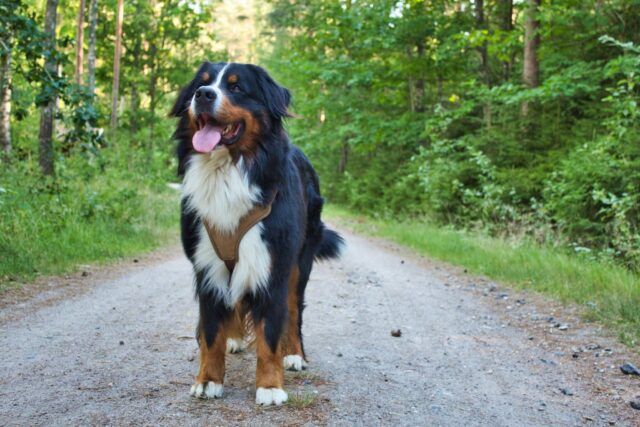
9. Golden Retriever
Golden Retrievers are one of the most popular dog breeds due to their friendly and loyal nature. However, they are also susceptible to cancer, particularly hemangiomas, lymphomas, and mast cell tumors. These cancers can be aggressive and difficult to treat, making early detection essential. Golden Retriever owners should monitor their dogs for signs of lethargy, unusual swelling, and behavioral changes. Regular veterinary checkups and a healthy diet and lifestyle can help control their risk. Genetic research is ongoing to better understand and potentially reduce the risk of cancer in this beloved breed.
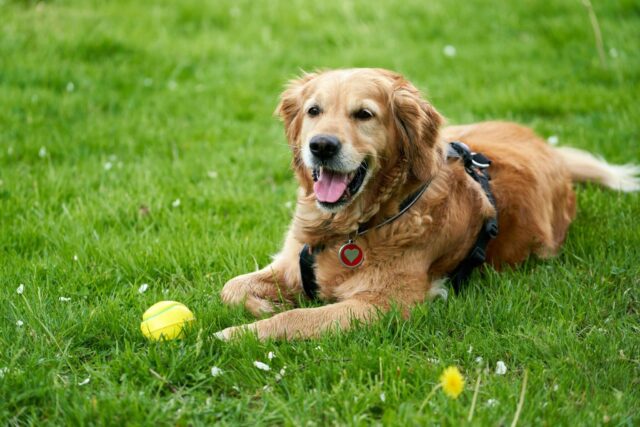
8. German Shepherd
German Shepherds are versatile working dogs, known for their intelligence and loyalty. Unfortunately, they are also prone to cancer, particularly hemangiomas and osteosarcomas. These aggressive cancers often affect the spleen and bones, and can be difficult to treat. German Shepherd owners should be alert to symptoms such as lethargy, limping, and unexplained weight loss. Regular veterinary visits and health checks are essential for early detection. Maintaining a healthy diet and avoiding over-exercise during growth periods can help manage their overall health and reduce their risk of cancer.
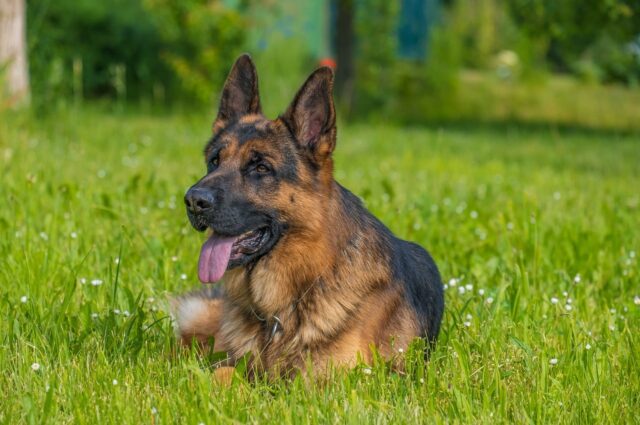
7. Labrador Retriever
The Labrador Retriever is another popular breed known for its friendly and outgoing personality. However, they are susceptible to certain types of cancer, including lymphoma and mast cell tumors. Their genetic predisposition to cancer requires regular health checks and careful monitoring of any unusual symptoms. Owners should be on the lookout for lumps, weight loss, and changes in appetite or behavior. Providing a balanced diet, regular exercise, and minimizing exposure to environmental toxins can help maintain their overall health and potentially reduce their risk of cancer.

6. Scottish Terrier
The Scottish Terrier, or Scottie, is a small, hardy dog with a distinctive appearance and a lively personality. They are particularly susceptible to bladder cancer, specifically transitional cell carcinoma (TCC). This type of cancer can be aggressive and difficult to treat. Scottie owners should look out for symptoms such as blood in the urine, difficulty urinating, and frequent urination. Early detection is important to control this disease, so regular veterinary checkups are essential. A healthy diet and avoiding exposure to pesticides and herbicides can help reduce the risk of bladder cancer in this breed.

5. Cocker Spaniel
The Cocker Spaniel is a small to medium-sized dog breed known for its affectionate and gentle nature. However, they are susceptible to certain cancers, including lymphoma and mammary tumors. The Cocker Spaniel’s genetic predisposition to these cancers requires regular veterinary checkups and early screening for potential problems. Owners should monitor their dogs for symptoms such as lumps, weight loss, and behavioral changes. Maintaining a healthy diet, regular exercise, and spaying or neutering female dogs can help reduce the risk of certain cancers in this breed.

4. Great Dane
The Great Dane is a gentle giant dog breed known for its friendly and affectionate nature. Unfortunately, their large size and genetic makeup make them susceptible to certain types of cancer, including osteosarcoma (bone cancer) and lymphoma. Great Dane owners should be especially vigilant for symptoms such as limping, swelling, and unexplained weight loss. Regular veterinary visits and health checks are essential for early detection and treatment. A balanced diet and maintaining a healthy weight can help support their overall health and reduce their risk of cancer.

3. Doberman Pinscher
The Doberman Pinscher is a healthy, sleek breed known for its loyalty and protective nature. However, they are also susceptible to certain cancers, including bone cancer and lymphoma. The Doberman’s genetic predisposition to these cancers requires regular health checks and careful monitoring of any unusual symptoms. Owners should watch for lumps, weight loss, and changes in appetite or behavior. Providing a balanced diet, regular exercise, and minimizing exposure to environmental toxins can help maintain their overall health and potentially reduce their risk of cancer.
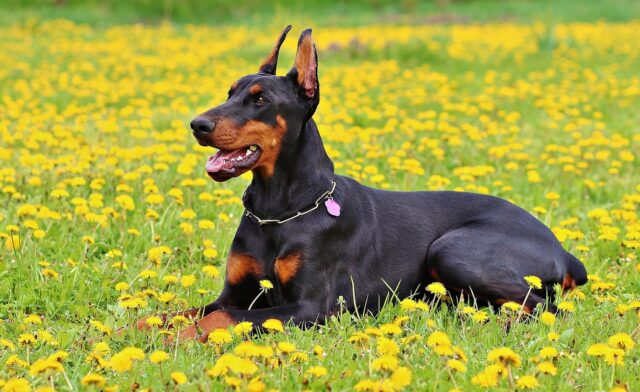
2. Bouvier des Flandres
The Bouvier des Flandres is a little-known breed known for its healthy physique and working abilities. However, they are also prone to cancer, particularly lymphoma and osteosarcoma. Bouvier owners should be on the lookout for symptoms such as lumps, weight loss, and behavioral changes. Regular health checks and veterinary visits are essential for early detection and treatment. Maintaining a healthy diet and regular exercise can help support their overall health and reduce their risk of cancer. Because they are so rare, ongoing genetic research is essential to better understand and reduce the risk of cancer in this breed.
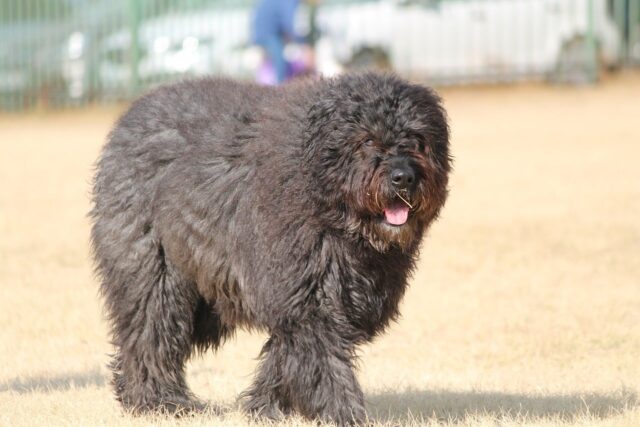
1. Bearded Collie
Bearded Collies, known for their fluffy coats and lively personalities, are susceptible to certain types of cancer, including hemangiosarcoma and lymphosarcoma. Their genetic predisposition requires regular health checks and careful monitoring for unusual symptoms. Owners should watch for lumps, weight loss, and behavioral changes. Providing a balanced diet, regular exercise, and minimizing exposure to environmental toxins can help maintain their overall health and reduce their risk of cancer.
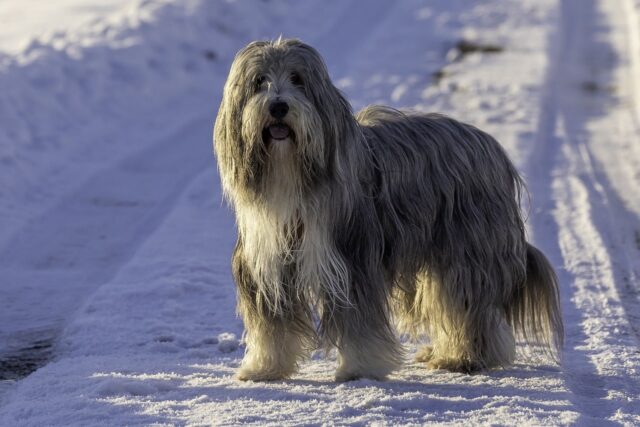
In summary, these twelve dog breeds are particularly susceptible to cancer, making awareness and early detection important for their health and well-being. Regular veterinary check-ups, a balanced diet, and a healthy lifestyle can help minimize the risks associated with cancer. Owners should be alert to any unusual symptoms and seek veterinary advice immediately to ensure the best possible outcome for their furry friend. Advances in veterinary medicine and ongoing genetic research continue to improve the understanding and treatment of cancer in these breeds, offering hope for better management and prevention in the future.




